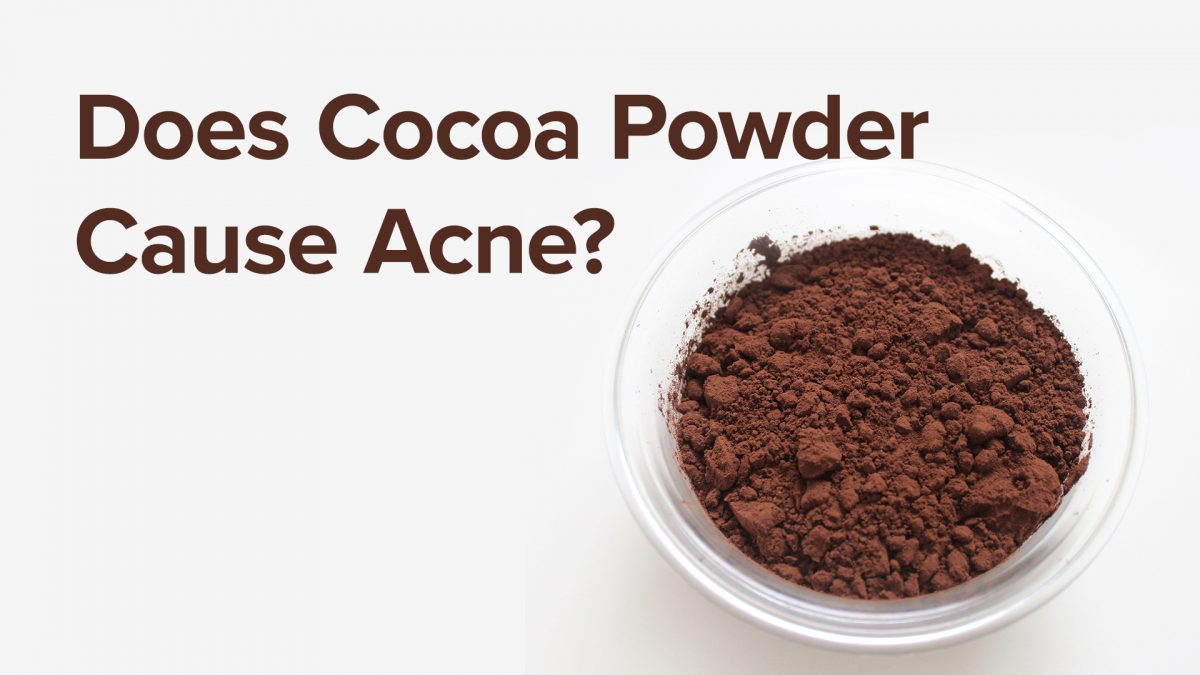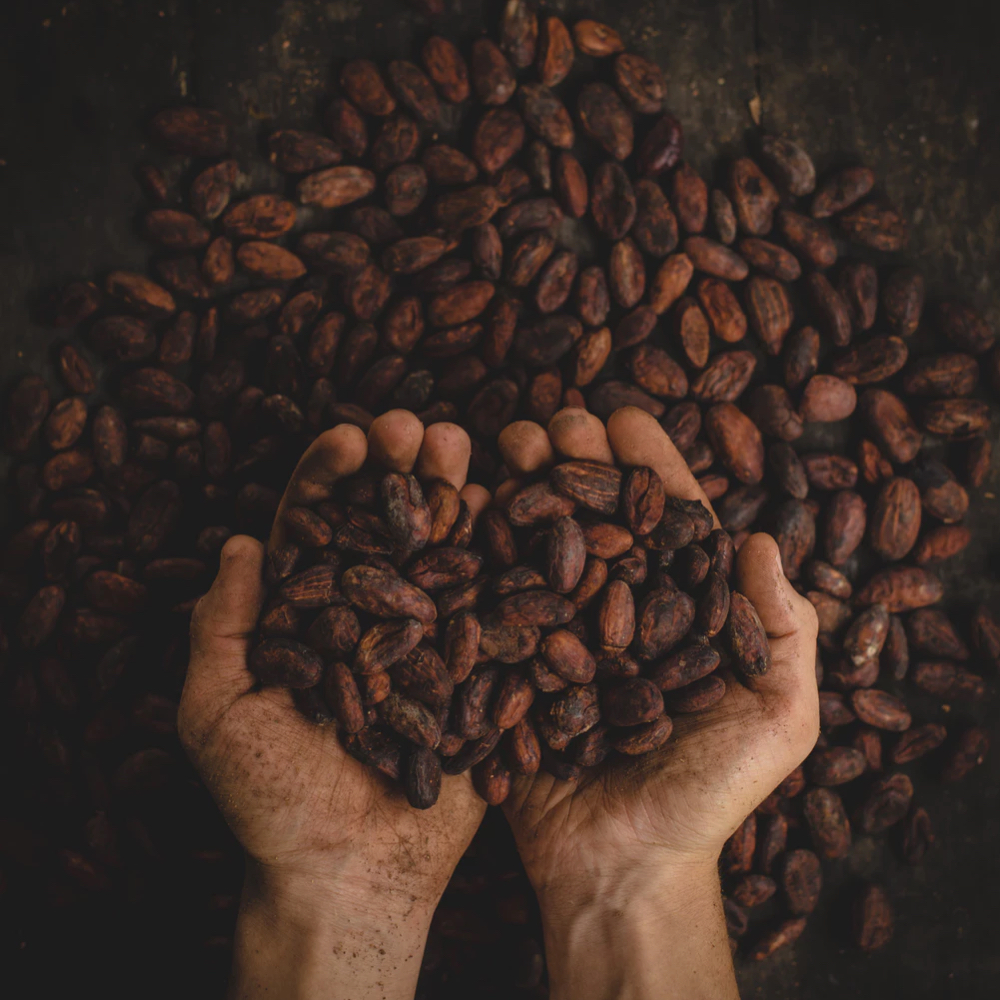
Cocoa
We know that the sugar in chocolate isn’t good for us and neither are the fat and excess calories, but natural cocoa powder can be considered a health food.
Where Does Cocoa Come From?
Cocoa comes from the cacao bean. Like other beans, it has wonderful health-promoting flavanol phytonutrients, like those found in green tea.
What Are the Health Benefits of Cocoa?
Cocoa has been found to lower blood pressure and bad cholesterol, boost good cholesterol, unstiffen arteries, boost our immune system, combat the effects of aging, and help treat chronic fatigue. It’s also been found to improve artery function, even more so than açaí berries.
Isn’t Cocoa a Processed Food?
If you’re familiar with my work, you’ve heard me say countless times that we should choose whole plant foods, but, sometimes, processing can make foods even more healthful. Salt-free tomato juice, for example, appears to be the one common juice that may actually be healthier than the whole fruit. The processing of tomato products boosts the availability of the antioxidant red pigment lycopene by as much as fivefold. Similarly, the removal of fat from cacao beans to make cocoa powder improves the nutritional profile, because cocoa butter is one of the rare saturated plant fats (along with coconut and palm kernel oils) that can raise your cholesterol.
So, for the purposes of my Traffic Light model, I like to think of “unprocessed” as nothing bad added, nothing good taken away. In the above example, tomato juice could be thought of as relatively unprocessed because even much of the fiber is retained—unless salt is added, which would make it a processed food in my book and bump it right out of the green zone. Similarly, I would consider chocolate processed because sugar is added, but not cocoa powder.
Why Is Cocoa Processed with Alkali?
Flavanols are what give cocoa its bitterness, so manufacturers often try to process cocoa with alkali to destroy them on purpose to improve taste. Thus, when it comes to cocoa and its nutritional benefits, bitter appears to be better.
Regular Cocoa Powder vs. “Dutched” Cocoa
Alkali-processed cocoa, commonly known as dutched cocoa, is not as healthy as regular cocoa powder. Dutched cocoa can have as little as half the phytonutrients of regular cocoa, but that just means you have to use twice as much to get a rich, chocolatey flavor. Personally, I prefer the taste of dutched cocoa so much more than regular cocoa that I don’t mind doubling up to get the same nutritional benefit. If you prefer regular cocoa, you’re getting twice the bang per spoonful.
For substantiation of any statements of fact from the peer-reviewed medical literature, please see the associated videos below.
Image Credit: Pablo Merchán Montes / Unsplash. This image has been modified.
Popular Videos for Cocoa


Dark Chocolate and Artery Function
What do studies not funded by the chocolate industry show about the effect of cocoa...All Videos for Cocoa
-

3 Healthy, Easy Recipes: Appetizer, Pasta, and Dessert
Celebrate the season with recipes from my cookbooks.
-

Banana vs. Mango Smoothies for Polyphenol Absorption
How can you mediate the phytonutrient-destroying enzyme in avocados, bananas, and mushrooms?
-

The Downside to Banana Smoothies for Polyphenol Absorption
An enzyme in bananas can destroy some of the phytonutrients in berries and cocoa, but there is a way to reduce the effect.
-

How Not To Age – Live Presentation
In this live lecture, Dr. Greger offers a sneak peek into his latest book, How Not to Age, a New York Times Best Seller.
-

Which Foods Are the Most Anti-Angiogenic?
For cancer prevention, researchers suggest “constant consumption” of anti-angiogenic foods.
-

Best Brain Foods: Greens and Beets Put to the Test
Cocoa and nitrite-rich vegetables, such as green leafies and beets, are put to the test for cognitive function.
-

Does Adding Milk Block the Benefits of Coffee?
How to choose the healthiest coffee, and the effects of adding milk vs. soymilk.
-

Are Apples the Best Food for a Better Sex Life in Women?
Addyi (flibanserin), the drug marketed for “hypoactive sexual desire disorder,” is ineffective and unsafe. What about dietary approaches for female sexual dysfunction?
-

Foods to Improve Athletic Performance and Recovery
What are the effects of spinach and berries on oxidative stress, inflammation, and muscle soreness in athletes?
-

Does Cocoa Powder Cause Acne?
Is the link between chocolate and acne due to the sugar, the milk, or the cocoa in chocolate? Researchers put white chocolate, dark chocolate, baking chocolate, and cocoa powder to the test to find out.
-

Dining by Traffic Light: Green Is for Go, Red Is for Stop
In this video, I explain my traffic light system for ranking the relative healthfulness of Green Light vs. Yellow Light vs. Red Light foods.
-

The Benefits of Açai vs. Blueberries for Artery Function
What are the effects of açai berries, cooked and raw blueberries, grapes, cocoa, green tea, and freshly squeezed orange juice on artery function?
-

Chocolate and Stroke Risk
Dark chocolate is pitted against milk chocolate in a test of artery function.
-

Caution: Anti-Inflammatory Foods in the Third Trimester
For the same reason that anti-inflammatory drugs like aspirin and ibuprofen are advised against during late pregnancy, anti-inflammatory foods may increase the risk of premature closure of the ductus arteriosus.
-

Does Chocolate Cause Weight Gain?
Big Candy boasts studies showing that those who eat chocolate weigh less than those who don’t, but what does the best science show?
-

Academy of Nutrition & Dietetics Conflicts of Interest
What effect do corporate sponsorships from food companies have on the American Academy of Family Physicians and the Registered Dietitian organization (formally known as the American Dietetic Association)?
-

Dark Chocolate and Artery Function
What do studies not funded by the chocolate industry show about the effect of cocoa on arterial health?
-

A Treatment for Chronic Fatigue Syndrome
An industry-funded, randomized, double blind, placebo-controlled crossover trial study suggests chocolate may improve symptoms for those suffering from chronic fatigue syndrome—a debilitating condition currently affecting as many as seven million Americans. But how do you get the cacao phytonutrients without the saturated fat and added sugar?
